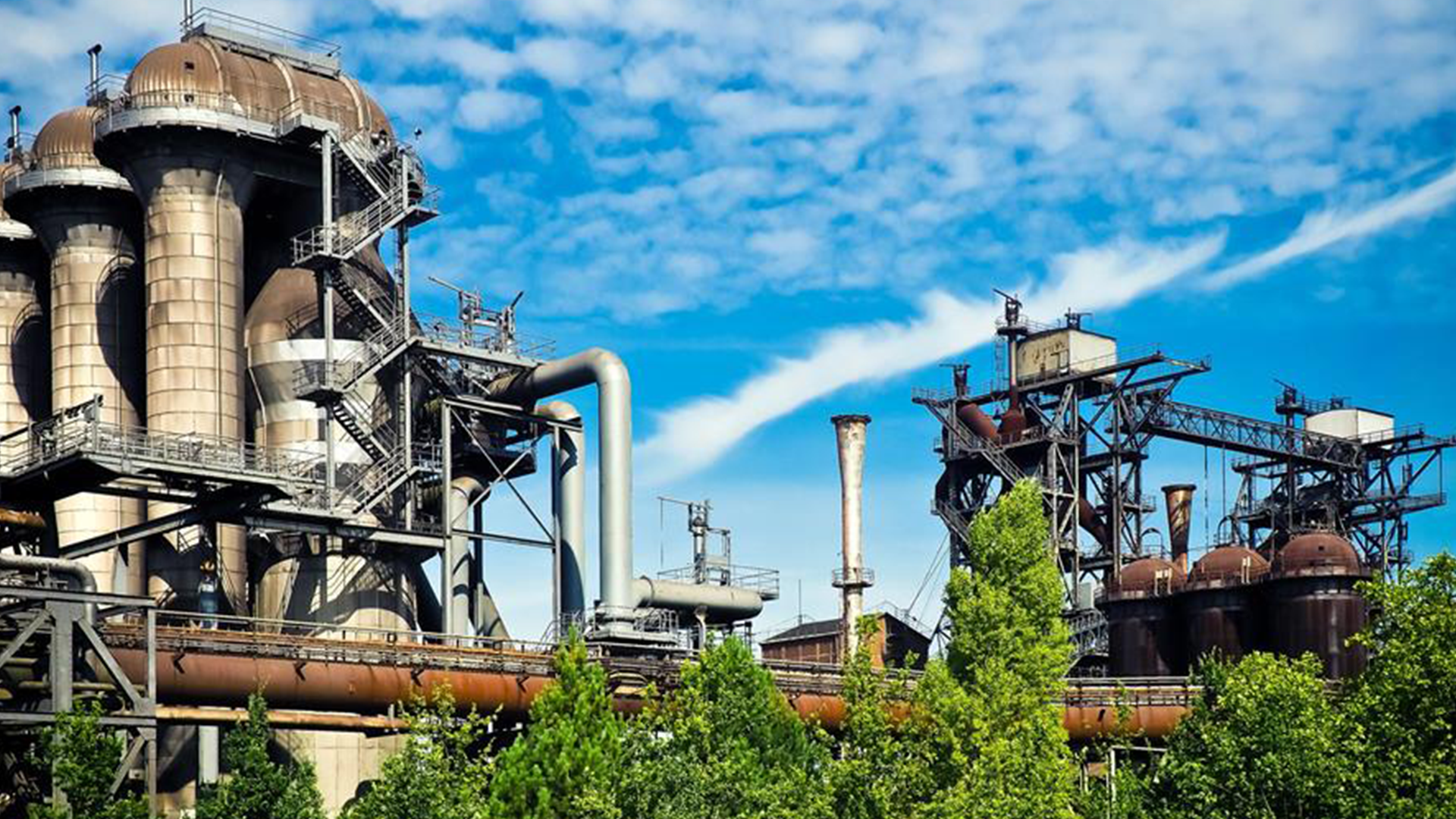-
The State Council issued a heavyweight document on the regulation of refined oil distribution, deploying four tax-related regulatory points
In recent years, in the wave of economic development and market change, China's refined oil circulation field industry regulation has gone through a number of major reforms. 2025, February 5, the General Office of the State Council issued the "Opinions on Promoting the High-quality Development of the Circulation of Refined Oil Products" (State Council [2025] No. 5), put forward five aspects of the 21 specific initiatives, the refined oil industry tax-related regulation has also made four important deployments. This article analyzes the key points of the new policy in light of the evolution of the policy. Under the new regulatory environment, enterprises need to actively respond and establish a sound tax compliance system to adapt to the new situation where wide access and strong regulation coexist.Feb. 10, 2025, 10:47 a.m.6479Views
-
Big Case Release: Hwuason Law Firm Represented Refined Oil Special Invoice Fraudulent Invoicing Case Convicted of Illegal Purchase of VAT Special Invoice with Probation and Concluded the
n 17th December, 2024, a criminal judgement was issued by a local people's court in a case of false invoicing of refined oil products by an enterprise trading refined oil products with a total of more than RMB 1.5 billion in value-added tax (VAT), in which the team of Hwuason Law Firm cooperated with each other and was represented by Wang Qiang in the court. The person in charge of the enterprise was transferred by the investigating authorities for examination and prosecution of the crime of false VAT invoices, and the prosecuting authorities and the people's court adopted the defence opinions of the lawyers, corrected the application of the crime by the investigating authorities, and finally sentenced the person in charge of the enterprise to the crime of illegally purchasing VAT invoices and applied probation. The judgement in this case has put into practice the rules of the two high tax-related judicial interpretations of the second paragraph of article 10 of the crime of false invoices, and has a positive reference significance to the case of false invoices in the field of refined oil products.Dec. 23, 2024, 10:32 a.m.5808Views
-
Cases of Scalpers Manipulating the Separation of Fuel and Invoice Should not be Treated as Makes out False Value-Added Tax Invoices and the maximum sentence should not exceed five years
The latest case shows that for the group of scalpers who manipulate the fuel and invoice to separate and assist the invoice-buying units to obtain chemical invoices or refined oil invoices in a fraudulent manner, according to the spirit of the judicial interpretation of the two high courts that limits the application of the offence of fraudulent invoicing and the rule of purpose of tax cheating + result of tax losing, the conviction should be based on the offence of unlawfully purchasing VAT invoices, that is, the maximum statutory sentence should not exceed five years. The maximum statutory penalty shall not exceed five years. The author suggests that parties involved in suchNov. 19, 2024, 11:03 a.m.5137Views
-
The maximum sentence in the case of petrochemical change of invoices fraud is not more than seven years, and parties who have been sentenced to more than ten years may seek to change their sentences.
In recent years, the convictions and sentences of criminal cases of petrochemical invoicing have varied greatly from place to place, and the fates of the parties in different cases have been very different. At present, whether it is the relevant provisions and the latest spirit of the judicial interpretations of the Supreme Court and the Supreme Prosecutor, or the recently disclosed cases of judicial adjudication, they are all confirming that the behavior of petrochemical alteration of invoices should not be treated as the crime of falsely opening VAT special invoices. Parties facing more than ten years or even life imprisonment due to wrongful conviction or heavy sentence should actively seek fair justice through appeals, and the people's courts should also take up the responsibility to take the initiative to carry out special review and supervision of historical cases, correct the mistakes in conviction and sentence, and let each individual case reflect the light of justice.Nov. 11, 2024, 10:57 a.m.5370Views
-
Whether a refining enterprise should be deemed to have carried out taxable production activities when directly selling externally purchased naphtha as raw material
In the field of consumption tax, the production of taxable consumer goods is a taxable activity, while pure trading activities are not within the scope of taxation and naturally do not require the payment of consumption tax. However, a refining and chemical enterprise received a notice from its competent tax authority requiring it to pay back taxes on the sale of purchased naphtha raw materials. Is there a legal basis for the tax authority to do so? Should the refining and chemical enterprise pay consumption tax on its trading business of purchasing and selling naphtha? This article intends to analyze this issue.Sept. 9, 2024, 2:44 p.m.5971Views
-
The key catch in exploring the nature of tax evasion by enterprises utilizing red-flush false naphtha invoices are these two table
After the refined oil products module went online, new behavioral patterns of false invoicing in the petrochemical industry have emerged, and red-flush false invoicing is one of them. In practice, some judicial authorities have dealt with red-flush false invoicing of refined oil products as the crime of false invoicing, but this does not accurately grasp the true nature of this type of behavior. The author will take the two declaration forms as the key hand to prove that the essence of the behavior of red-flush false invoicing is to sell the inventory data of refined oil products in order to evade the consumption tax, so as to help the judicial authorities to correctly convict the behavior on the basis of correctly exploring the essence of the behavior, so as to provide the practical judicial protection for the only legal interest of the national consumption tax interests that are infringed upon in this kind of cases.July 23, 2024, 1:47 p.m.5831Views
-
What will be the impact of the judicial interpretation of the Supreme People's Court and the Supreme People's Procuratorate on the convicted cases of false VAT invoices in the petrochemical industry?
The Interpretation of the Supreme People's Court and the Supreme People's Procuratorate on Several Issues Concerning the Application of Law to the Handling of Criminal Cases of Endangering the Administration of Tax Levies (Legal Interpretation [2024] No. 4) makes it clear that false invoicing that does not aim at fraudulently offsetting the taxes and does not result in a fraudulently lost tax due to the offsetting does not constitute the offence of falsely invoicing for value-added tax. Accordingly, it can be seen that the legal interests protected by the offence of false invoicing of VAT specifically refers to the VAT collected and managed by way of credit, and this conclusion is not created by the judicial interpretation of the Supreme People's Court and the Supreme People's Procuratorate, but is the original meaning of the criminal law, which is also applicable before the implementation of the judicial interpretation of the Supreme People's Court and the Supreme People's Procuratorate. Tax-related cases in the petrochemical industry mainly infringed upon the interests of consumption tax, and the perpetrators usually did not have the purpose of fraudulently offsetting VAT, nor did they have the possibility of causing VAT losses. However, in the past, in the trial of petrochemical tax-related cases, many courts did not make appropriate purposeful interpretations of the criminal law, and did not accurately determine the tax interests infringed upon by petrochemical tax-related cases, which led to a large number of such cases being convicted of the offence of fraudulently opening VAT special invoices. We are of the view that cases in the petrochemical industry that have been convicted of false invoicing have been incorrectly identified as facts and incorrectly applying the law, and that appeals can still be actively filed.April 25, 2024, 10:22 a.m.5597Views
-
Gas station criminal risks diversify as multi-agency efforts continue to address fuel pump cheating and tax evasion
Since 2022, various regions have successively carried out rigorous remediation of fuel dispenser cheating behavior, and some regions have achieved results. Recently, Zhejiang Province Market Supervision Administration summarized the effectiveness of the inspection since the launch of the special governance action of fuel dispenser measurement accuracy in March this year, and released the top ten typical cases of this special governance. Among them, shaoxing zhuji investigated and dealt with a cheating gasoline dispenser oil sales case, the party in August 2022 from others to buy an illegal modification can be cheated through the instrument to control the actual amount of fuel dispenser, as of the time of seizure, the party has been the use of the above gasoline dispenser sales of diesel fuel more than 15 tons, the amount of money involved in the case amounted to more than 100,000 yuan. Because of the large amount of money involved, Zhuji City Bureau of this case is suspected of constituting a crime of fraud according to the law transferred to the public security organs to deal with. It can be seen that cheating on gasoline dispensers not only involves tax evasion, but may also be suspected of other crimes.Nov. 30, 2023, 12:14 p.m.6507Views







